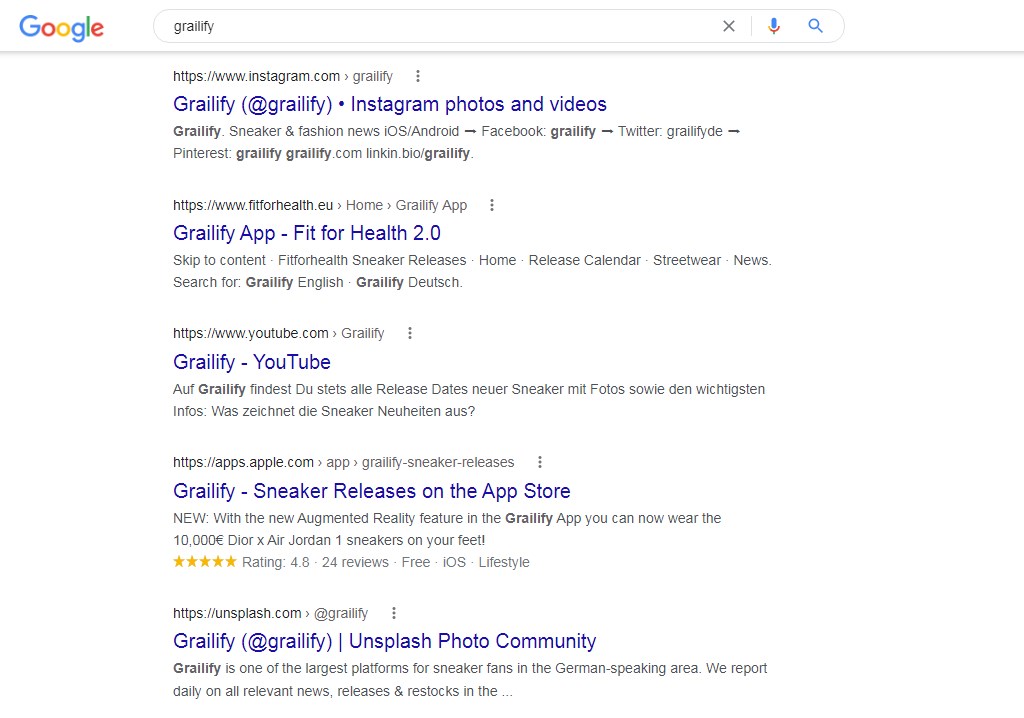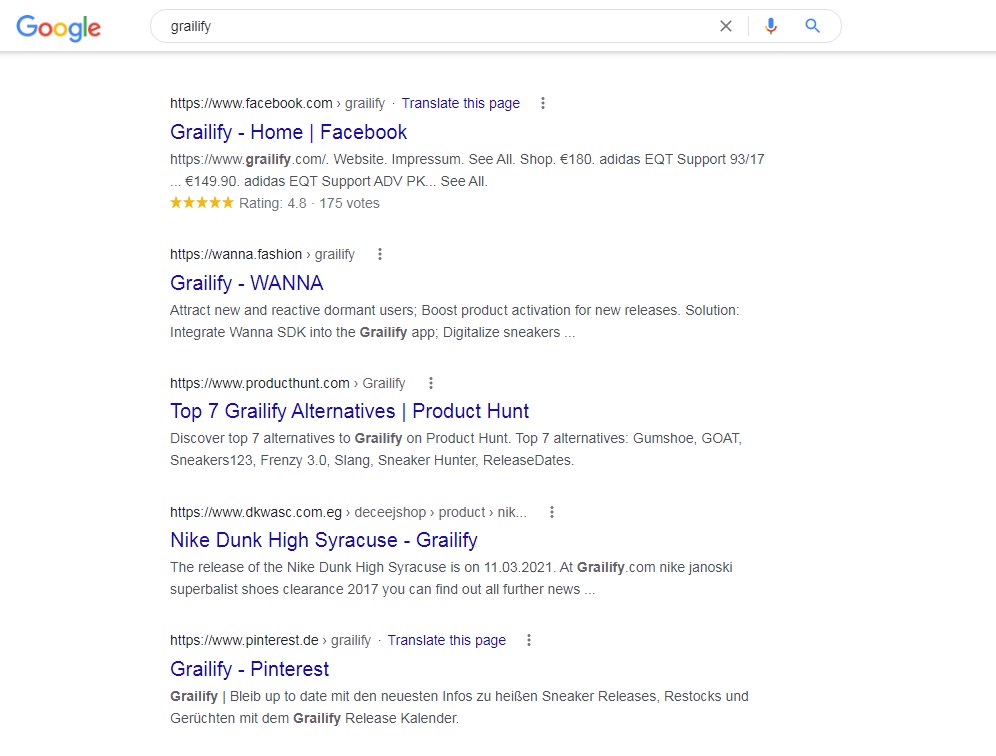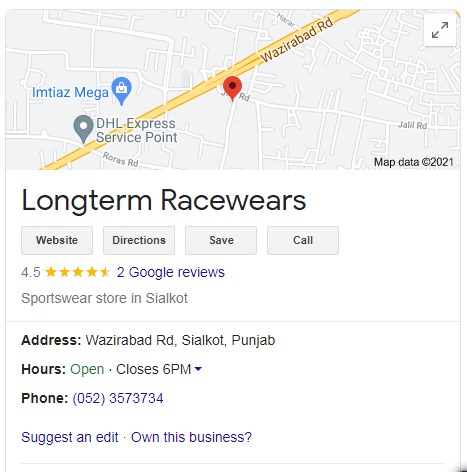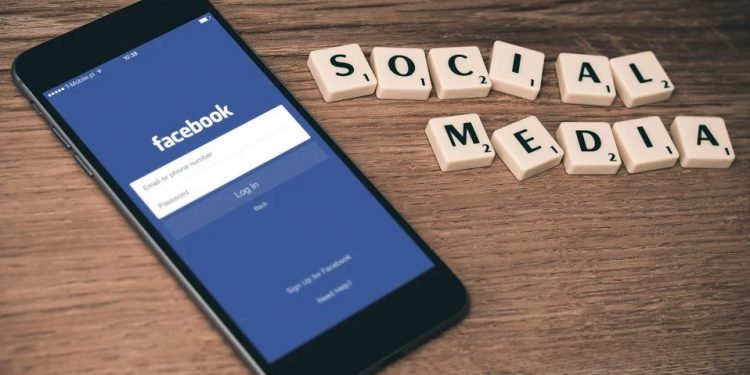There is an ongoing debate about the influence of so-called “social signals” on the ranking of a website in search engines.
The main argument is that social media doesn’t directly affect SEO. But in recent years there have been numerous studies that wanted to have found a stronger correlation between “social signals” and the rankings of a website.
What are social signals?
The “social signals” are e.g. likes, votes, views, and pins that people distribute on social networks. These signals indicate that users are talking about a brand or a company.
The basic idea is as follows: Social signals indicate that users are talking about a brand, a company, or a website. In theory, this should improve the SERPs as search engines view these signals as trustworthy “recommendations”. Similar to “backlinks” just not quite as strong.
What does Google say about that?
Matt Cutts, the former head of the webspam team at Google, has reported several times over the past few years about the importance of “social signals”.
At the SMX advanced in June 2012, Cutts announced that conventional backlinks were given a significantly higher weighting than “social signals”. But, as is so often the case, he also gave a hint and said that one should invest in this area for the long term.
Even in 2014, when Cutts published a video on the Google Webmasters YouTube channel, the news was clear: There are no connections between profiles on social networks and Google rankings. For technical reasons alone, according to Cutts, it is not possible to crawl the unbelievable amount of data at that time. Blocking of Google bots by Twitter also meant that Google did not even have access to the vast amounts of data.
However, this situation changed in May 2015 when tweets were again found in Google’s search results. A sign that Google has eliminated these technical difficulties.
In the video, however, he also shows that the development will go towards understanding the connections and identities of users in social networks much better. He speaks of a period of several years in which Google still needs to better evaluate these factors.
Case studies
As is so often the case, there is no clear answer from Google or Matt Cutts. In such cases, SEOs like to resort to a means: case studies. Over the past few years, there have been countless studies and attempts by individual SEOs to large online marketing agencies on this topic.
Some of you want a connection between 0 and a page’s rankings. CognitiveSEO experienced the following: A post was viewed over 20,000 on Reddit and at the same time the ranking of the page for the term “Google Images” shot up from 74th to 8th, only to fall back a few days, shortly after the hype flattened on Reddit.
British SEO Matthew Woodward has had a similar experience. After one of his posts on Facebook was even shared by a celebrity and then went viral, the blog post landed at number 1 on Google and has stayed there ever since.
Moz has also found a strong connection between the number of likes/shares of a post on social media and the rankings of the respective page.
Correlation and Causality
In all the studies and experiments, connections and clues were discovered again and again. The fact is, however, that correlation does not confirm causality.
On the contrary, it is even likely that a page will be ranked well if it is shared a lot on social networks because as a rule it simply means that this page has some form of added value and is therefore likely to receive good rankings.
Which of these came first, however, is not verifiable, and therefore it is also not necessary that the “social signals” are solely responsible for boosting the ranking.
How do social signals then influence SEO?
Nonetheless, “social signals” have a strong impact on SEO – both directly and indirectly. Here is a list of the most important advantages of social signals and why every company that wants to rank well on Google should invest a lot of work in social media marketing:
1. Social media brings traffic & backlinks
We know that backlinks are one of the most important success factors. With 3.5 billion social media users worldwide, there is a good chance that a lot of shared posts will also appear on other blogs. The traffic that is shared by a lot also increases logically and that is additional traffic that would not arise without social media work.
2. Additional brand awareness
The many additional visitors help to increase brand awareness. Logical, because if good content is shared countless times on social networks, then it is very likely that the company will also gain new users or customers as a result.
Some studies have shown that direct traffic also has an impact on rankings.
Social media is a very good place to generate additional brand awareness. This is where the people are “gathered” and the people themselves become multipliers when they recommend a post to their friends.
3. Social media profiles rank (well) on Google
Social media profiles sometimes rank very quickly and very well in Google search results. This also increases brand awareness and also leads to additional traffic.


In addition, Google now shows the ratings of the profiles in the search results. So if you want to find out more about a company and read more about the reviews, you can refer to the profiles or reviews at any time.
4. Boost for local SEO
It’s no secret that having a “Google My Business” profile is especially helpful for local businesses and businesses. Because Google can list the company for local search results in relevant searches. In this way, local companies gain additional customers with the “My Business” profile.

Conclusion
In conclusion, it can be said that to date there is no clear evidence that “social signals” directly improve the rankings in the search results of the search engines.
But it is also a fact that social media and the “social signals” influence SEO in various other ways, which is why social media marketing should be included in search engine optimization.















































